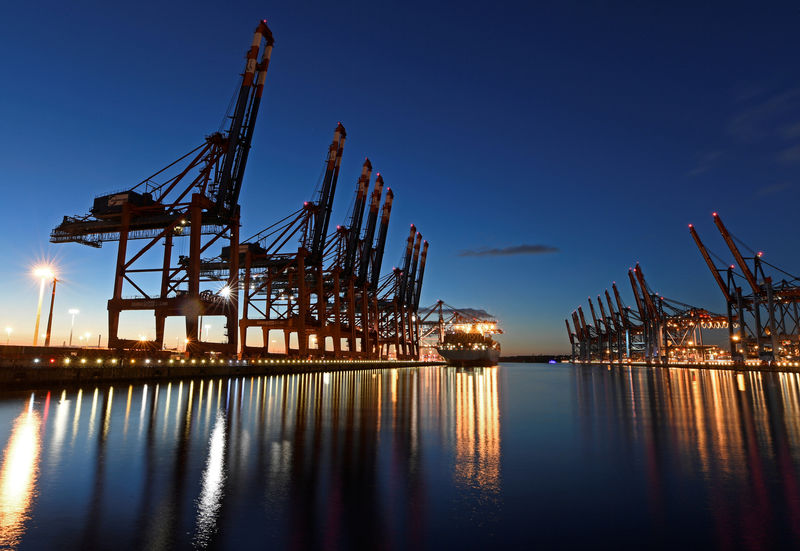By Michael Nienaber
BERLIN (Reuters) - Business morale held steady in Germany in September, propped up by consumer spending and construction, a survey showed, to leave the country on track for further growth even if a uncertain global economic outlook worsens.
The Munich-based Ifo economic institute's business climate index edged down to 103.7 on Monday from an upwardly revised 103.9 in August. That beat a Reuters consensus forecast of 103.2.
"Despite growing uncertainty, the German economy remains robust," said Ifo chief Clemens Fuest, pointing to improved sentiment in retailing and a record-high reading in the building industry.
But the manufacturing sub-index dipped and companies scaled back their overall expectations slightly, suggesting a growing trade row between Washington and Beijing is weighing on exporters.
The growth outlook is also clouded by an impasse in Britain's negotiations with its European Union partners over the conditions of its departure from the bloc next March.
"Despite the good mood, uncertainty is gradually growing among companies," Ifo economist Klaus Wohlrabe said.
Economy Minister Peter Altmaier has said the economy was likely to grow around 2 percent this year. That would be less than both the government's forecast of 2.3 percent and the calendar-adjusted growth rate of 2.5 percent reached last year.
GROWTH, BUT AT A SLOWER PACE
As momentum in exports, its traditional engine of growth, slows, household spending and construction have become increasingly important drivers for Europe's biggest economy.
Unemployment is at record lows and German consumers are reaping the benefits of rising real wages and cheap credit due to the euro zone's expansive monetary policy.
The Ifo survey showed business sentiment improved in all sectors other than manufacturing.
Fuest said managers viewed their current business situation a bit less favorably than in August, but that that sub-index remained at a relatively high level.
The Ifo figures chimed with a survey among purchasing managers published last week that showed private sector growth slowed in September as a surge in services activity was not enough to offset a sharp slowdown in manufacturing.
Andreas Scheuerle from DekaBank said the uncertainty caused by the U.S.-Sino trade dispute was dampening demand for German industrial goods.
"The economy is doing well but growth is limited," Joerg Zeuner, chief economist of KfW bank said.

"A domestic economy that continues to be strong is set against a somewhat stuttering demand from abroad, which is being felt in particular by industry," he added.